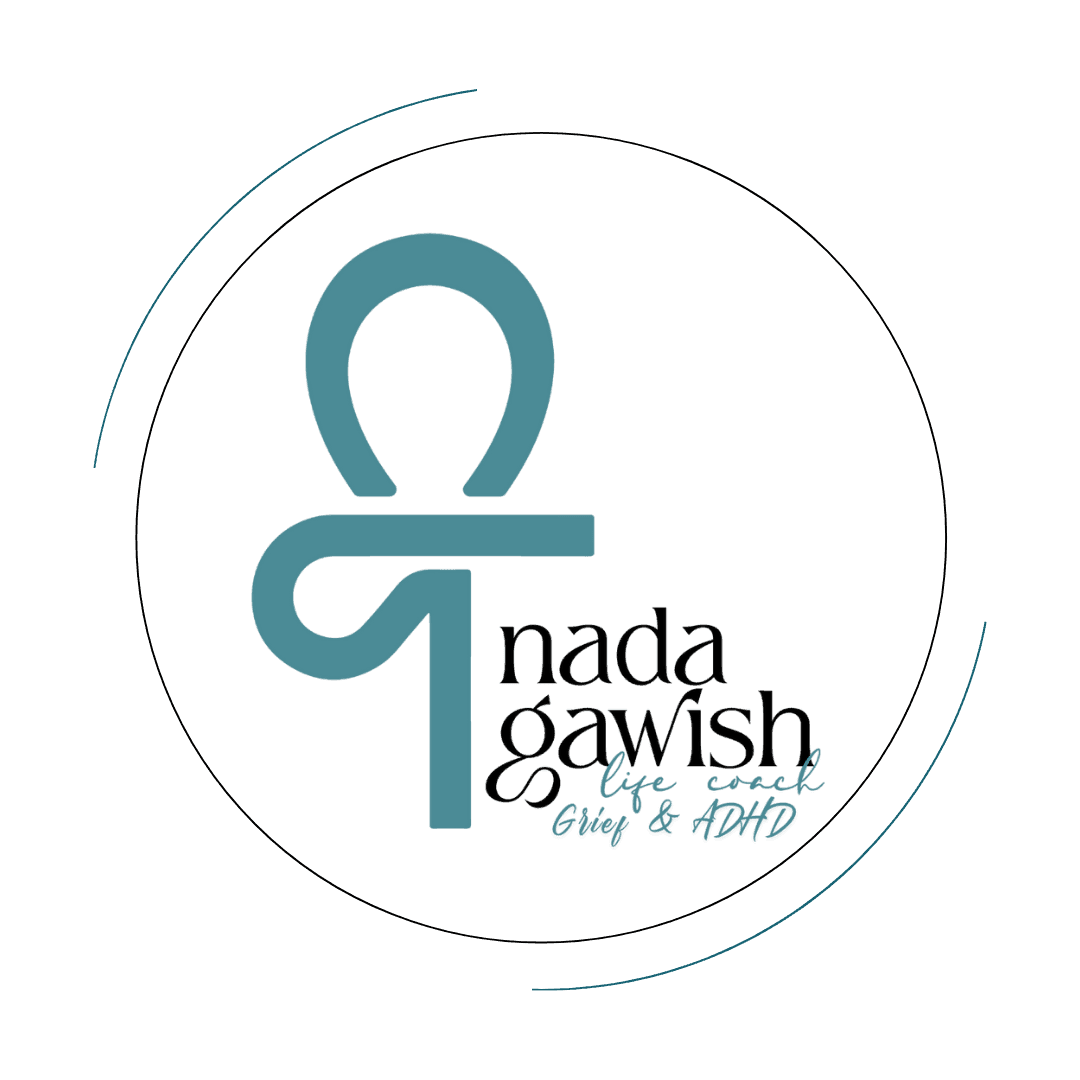Connect for Healing and Growth
Discover transformative journeys with Coach Nada Gawish, guiding you through life's challenges towards healing and personal growth. Join us!
How a Grief Coach Can Help You Find Your Way Forward
Life after loss can feel like navigating unknown territory without a map. That's where I come in - not to lead you out of grief, but to walk beside you through it.
As your grief coach, I create a space where your feelings aren't just acknowledged - they're welcomed. Bring your anger, confusion, sadness, guilt, or numbness. All of it belongs here.
Many clients tell me they feel pressure to "move on" or "get over it." Friends and family mean well, but sometimes they just don't understand. With me, there's no timeline for your healing. Your grief journey is as unique as your relationship with what you've lost.
I offer practical support for the everyday challenges grief brings - like how to get through anniversaries, handle well-meaning but hurtful comments, or find sleep when your mind won't quiet down. Together, we'll develop personalized strategies that actually work for you.
Grief affects every part of who you are. It shows up in your body as fatigue or pain. It changes how you see yourself and your future. It raises spiritual questions that don't have easy answers. We'll address all these dimensions of your experience.
When you're ready - and only then - we can explore what finding meaning might look like for you. How might you honor your loss? What new understandings about life might emerge? What parts of yourself might you rediscover or develop?
My clients often tell me that grief coaching helped them realize something profound: you don't "get over" significant loss. Instead, you learn to build a life around it - one where joy and pain can coexist, where memories bring comfort alongside sadness, where you can move forward without leaving your loved one behind.
I'd be honored to accompany you on this journey. The path through grief isn't straight, but you don't have to walk it alone.
Understanding Different Kinds of Grief
Grief isn't just one feeling - it comes in many shapes and forms.
When we lose someone or something important, we all grieve differently. Let me walk you through some common types of grief in simple terms:
Regular grief happens after a loss. You might cry, have trouble sleeping, or not feel hungry. These feelings come and go, and over time, they usually become easier to handle. This doesn't mean you forget your loved one - it means you're learning to live with the loss.
Expecting grief happens before the actual loss. Maybe your loved one has a serious illness, and you're already grieving even though they're still here. This is completely normal.
Stuck grief is when the intense pain doesn't ease up after a long time. If you find yourself unable to move forward after a year or more, talking to someone like me or a therapist might help.
Hidden grief happens when others don't recognize your loss. Maybe you lost a pet, had a miscarriage, or ended a relationship. Just because others don't see your pain doesn't make it less real.
Unclear grief occurs when you don't have closure - like when someone is missing or has dementia. You're grieving someone who is still physically here but changed or absent in other ways.
Piled-up grief happens when you face multiple losses close together. Before you can process one loss, another comes along. This can feel overwhelming, like waves crashing over you.
Delayed grief is when you push your feelings aside, maybe to take care of others or just to survive. Then months or years later, something triggers those feelings and they all come rushing in.
Disguised grief shows up as physical problems, anger, or using substances rather than sadness. Sometimes our bodies and behaviors express what our hearts aren't ready to feel.
Shared grief happens in communities after tragedies like natural disasters or when a public figure dies. We feel connected in our sadness.
Chain-reaction grief is about the ripple effects of a major loss. When you lose someone, you might also lose financial security, your sense of identity, or plans for the future.
Remember, there's no "right way" to grieve. Your journey is unique to you. Whatever you're feeling is valid, and you don't have to walk this path alone.
